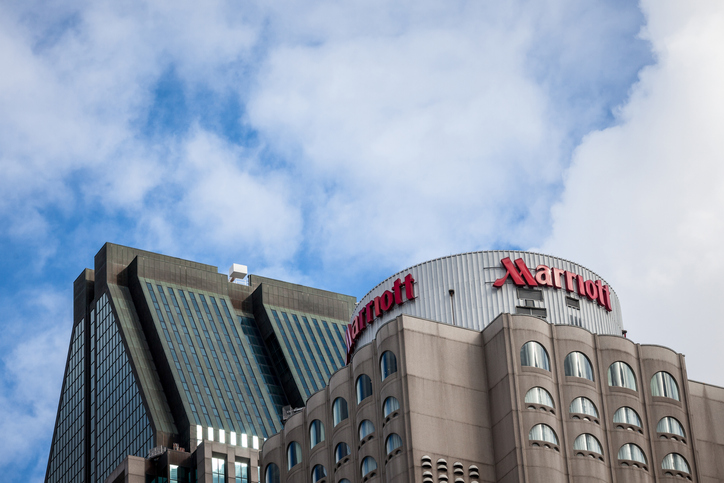Marriott International Inc on Friday reported a better-than-expected quarterly profit, as the world’s biggest hotel chain benefited from a lower effective tax rate and higher room prices.
An expanding U.S. economy has driven demand for corporate travel, benefiting the owner of Ritz-Carlton and St. Regis luxury hotel brands.
However, an increase in existing tariffs on $200 billion worth of Chinese goods to 25% from 10% may threaten global economic growth in the quarters ahead, affecting travel demand, analysts have warned.
Marriott said its occupancy rate fell 0.8% in North America, its biggest market, while room prices increased by 2%, resulting in revenue per available room (revPAR) rising 0.8% in the first quarter ended March 31.
RevPAR, a key measure of a hotel’s financial performance, is calculated by multiplying the average daily room rate by occupancy rate.
Asia Pacific, Marriott’s large market outside North America, gained in both occupancy and room rates, with occupancy rising 1.9% and rates increasing by 0.5% in the quarter.
Marriott results, aided by lower taxes, were seen as “unspectacular” by an analyst, who said the numbers were unlikely to cheer the investors.
“Despite these positives, the quarter is likely not enough to push the shares higher in the current market context,” Jefferies analyst David Katz wrote in a note.
Marriott’s worldwide revPAR rose 1.1% in the quarter, driven by a 1.5% increase in room rates. Also, the company reaffirmed its full-year worldwide revPAR forecast between 1% and 3%.
The company raised its full-year 2019 adjusted profit forecast in the range of $5.97 per share to $6.19 per share, from a previous forecast of $5.87 per share to $6.10 per share, partly due to a lower effective tax rate.
On an adjusted basis, the company earned $1.41 per share, beating the average analyst estimate of $1.34 per share, according to IBES data from Refinitiv. Marriott’s profit beat was helped by a lower tax rate of 13%, against an expected rate of 21%.
Revenue rose marginally to $5.01 billion in the quarter, but was below analysts’ estimates of $5.11 billion.
Shares of the company fell 3% to $131.50 in premarket trading.
Up to Thursday’s close, the stock had risen 24.8% this year, outperforming an 18.4% increase in the Dow Jones U.S. Consumer Services index






